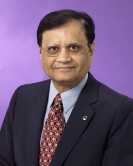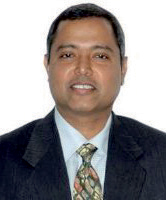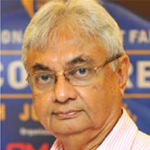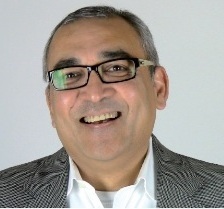There is a huge gap between Indian and international fashion studies
A lack of upgraded courses in costume designing and fashion as per industry demands led to the launch of the Whistling Woods School of Fashion that focuses on offering a holistic understanding of the fashion industry to aspiring students. In conversation with Fibre2Fashion, programme head Nisha Chanda speaks about the school, the quality of education in India as compared to international standards, and the changes that need to be brought about in fashion education in the country.
Fibre2Fashion: From films to fashion, what led to this trajectory? When did Whistling Woods School of Fashion start and what was the thought behind it?
Nisha Chanda:
Whistling Woods International is primarily known for its premier filmmaking courses. The school is a by-product of our chairman, Shubhash Ghai's immense knowledge and experience in the film industry. It is undoubtedly the most ambitious school and is Asia's largest film, communications and media arts institute. Being industry-specific, the institute believes in leaving no stone unturned in imparting knowledge to our students from every sector of the industry. We realised the lack of upgraded courses in costume designing and fashion as per constant industry demands. This gap then motivated us to instil the science of clothing and fashion in our students and so the School of Fashion was launched. The school is mentored by the pioneer of the fashion and costumes industry, Neeta Lulla. Our objective is to offer a holistic understanding of the fashion industry to aspirants, which will provide career opportunities in different areas of fashion, design, film and other fields.
F2F: How do you intend to deal with competition from established names in the field? What is your USP?
NC:
We challenge ourselves to be the best to educate our students as per industry expectations. The humongous infrastructure and the constant support from Neeta's in-house experienced professionals and industry leaders, we consistently modify our course curriculum as per industry trends. Be it students creating commercially viable garments, in-depth knowledge from fibre to consumer, styling and designing for films and media, intense study of all sectors of clothing and creating fashion films, Whistling Woods School of Fashion has been influencing the education sector in fashion since the day it launched. Our student evaluations are exactly as per the industry expectations and our students get internships and placements with some of the biggest brands in the country. That is our USP.
F2F: How different is your syllabus from that of the existing institutes in this domain?
NC:
With our association with the Tata Institute of Social Sciences (TISS), our syllabus is very international in approach. The core subjects are taught according to the current methodologies and presentation skills. The course has a 360-degree approach towards fashion including costume-designing, drawing and digital-designing, fashion communications, pattern-making in apparel construction, textiles, entrepreneurship and factory marketing. WWI offers various courses through which we carry out inter-departmental collaboration and that has greatly benefited our students in more ways than one. We have projects where we merge departments like filmmaking, acting and animation with fashion wherein our students get a hands-on experience in handling shoots, understanding camera requirements, character designing and styling. So, before the course ends they already have their portfolio that includes not only academic but also non-academic industry-based assignments.
F2F: What measures need to be adopted to improve the quality of fashion education in India?
NC:
There is still a huge gap between the national and the international formats of studies in fashion. With globalisation at its peak, I believe it is a must for every fashion school in India to impart knowledge of global size charts, international patternmaking methodologies and globally approved fashion machinery. India is one of the leaders in textiles, but we still need to bridge the gap by using our heritage textiles and by catering to the world with garments that are in-line with internationally approved quality and design standards.
F2F: Which streams of fashion education need more attention?
NC:
I have noticed that every fashion aspirant is more inclined towards garment designing and its presentation. What they need to concentrate more on are cuts, patterns and sewing quality. Unfortunately, very few students focus on those aspects, and hence the ratio of students opting for fashion courses is more than the ones who actually make it big in the industry. WWI aims to change that with Neeta Lulla's mentoring and our excellent programme structure as well as deeper understanding of the industry at large.
F2F: Which are the areas on which fashion students should focus more on in order to further improve the Indian fashion sector?
NC:
As I said, a global thought process is the key to success. One needs to understand the global consumer behaviour. The quality demands, the commercial viability and the art of sewing with creative designing. The students need to be more specific about the segment and based on the clientele they are inclined to cater to, rather than randomly designing and just opting for embellishments since that does not make commercial sense.
F2F: What kind of support do you expect from the government for improving fashion education in India?
NC:
Honestly, I am very happy with the current government acts of promoting Indian textiles nationally and internationally. That said I still feel we need better provisions for importing internal machinery. Even tweaking or removing heavy taxes from fashion events will be helpful. Fashion forecasting and research are also fields where I feel the government needs to invest more.
F2F: Right now, among students, the most sought-after stream seems to be fashion design and fashion communications. What does industry have to say about it? Is this fascination causing a shortfall of quality human resources in other areas of the fashion industry?
NC:
Absolutely yes! It does create a disconnect in the industry when the available human resource or even students of the fashion industry, as interns/employees cannot cope with the demands. And the major reason is because they have never had 360-degree approach towards fashion that will have equal importance to every sector. And that is what we focus on at the WWI school of fashion. Especially in fashion, one is required to be master of all in order to fall in the synergy of a workplace in the industry.
F2F: Fashion curricula needs to be both industry-led as well as capable of leading the industry. How do you see WWI addressing this?
NC:
As I mentioned, the evaluation of the student's work throughout the three years of the programme, is based on the industry's high expectations that the students are mostly likely to face when they complete their course. To boost the practical aspect on the programme, we have a huge panel of industry professionals who are invited to interact and teach our students the industry norms, day-to-day know-hows and share their experiences. Our professional tutors include names like our mentor herself, Neeta Lulla, Nikhil Thampi, Babita Malkhani, Gaurang Shah and many more. We even conduct industrial visits, both nationally and internationally to address the same objective.
F2F: The entry/role of foreign universities has suddenly come under a cloud. How do you think foreign universities can bridge the HR gap?
NC:
Everything has its own pros and cons. Though we feel sad that nowadays education is becoming fancier than informative, due to which students get misguided and end up with wrong choices. That said some are also here with focused academic objectives. Their methodologies are good, but I am not really sure about their understanding of merging the design skillset and resources in India. But I feel in the end, India welcomes every institute hat is promising enough to make the most of our skilled youth.
F2F: The National Skill Quality Levels (NSQL)-will WWI be involved with this? What are the skillsets that are going to be focussed upon like pattern-making or embroidery or stitching or anything for that matter?
NC:
Yes, we believe in being in sync with any quality standards and upgrades of the industry. We look forward to focus on the skills of understanding the fabric composition, pattern-making, apparel construction, couture finishes and advance sewing techniques.
F2F: Is there a dearth of good faculty members across the country? How do you intend to plug the gap?
NC:
Yes, there is a dearth of academic faculties with intense knowledge but as per our objective, we are more inclined in inviting and engaging industry professionals for better education. Hence, our core panel of faculties include academic and industry professionals. We even believe in more than one faculty per subject to provide every possible perspective towards the fashion industry and the complete sector at large.


20230103183907.png)



_8.JPG)






